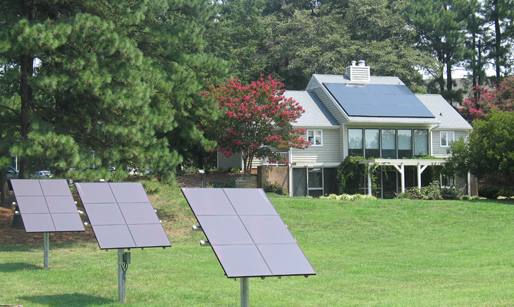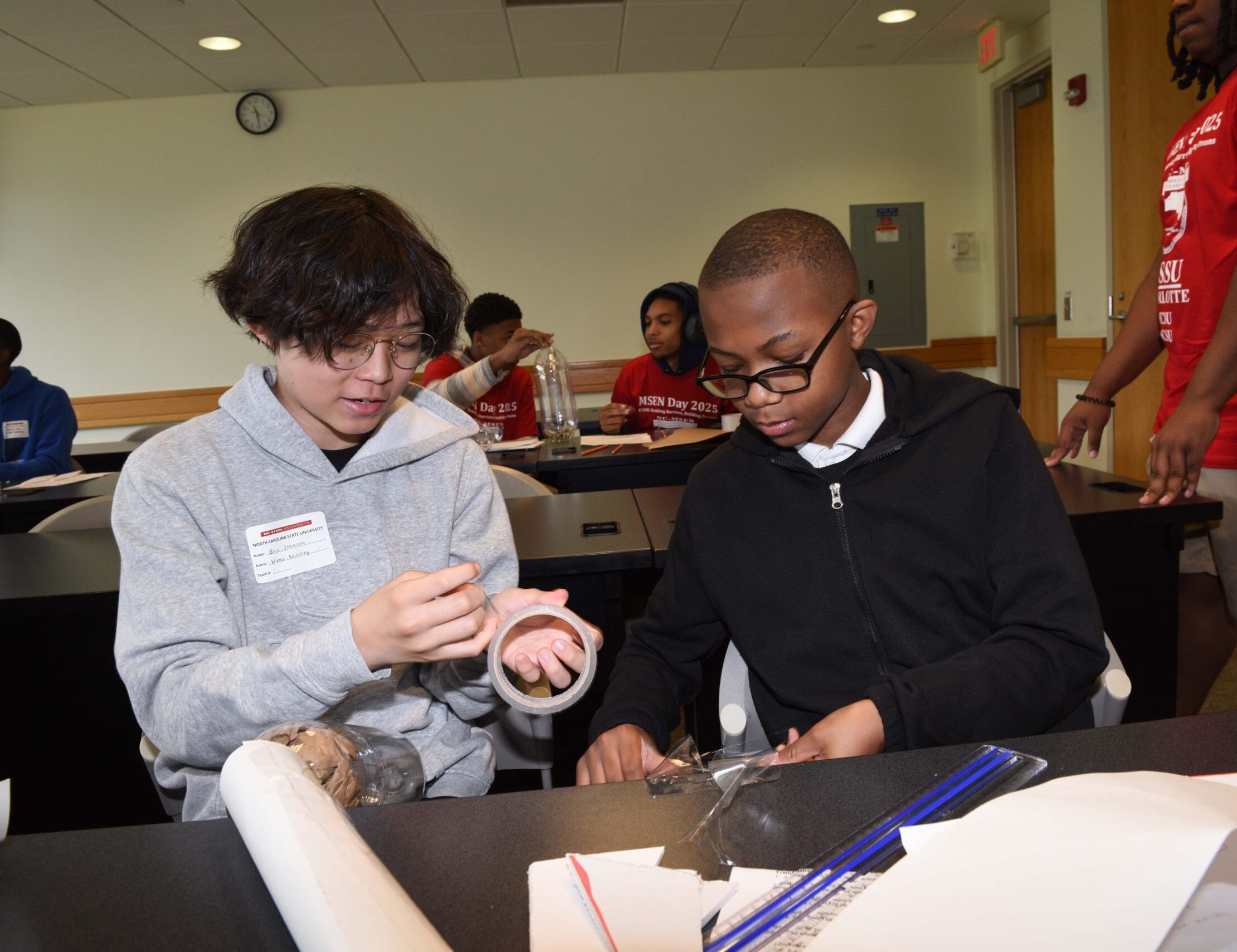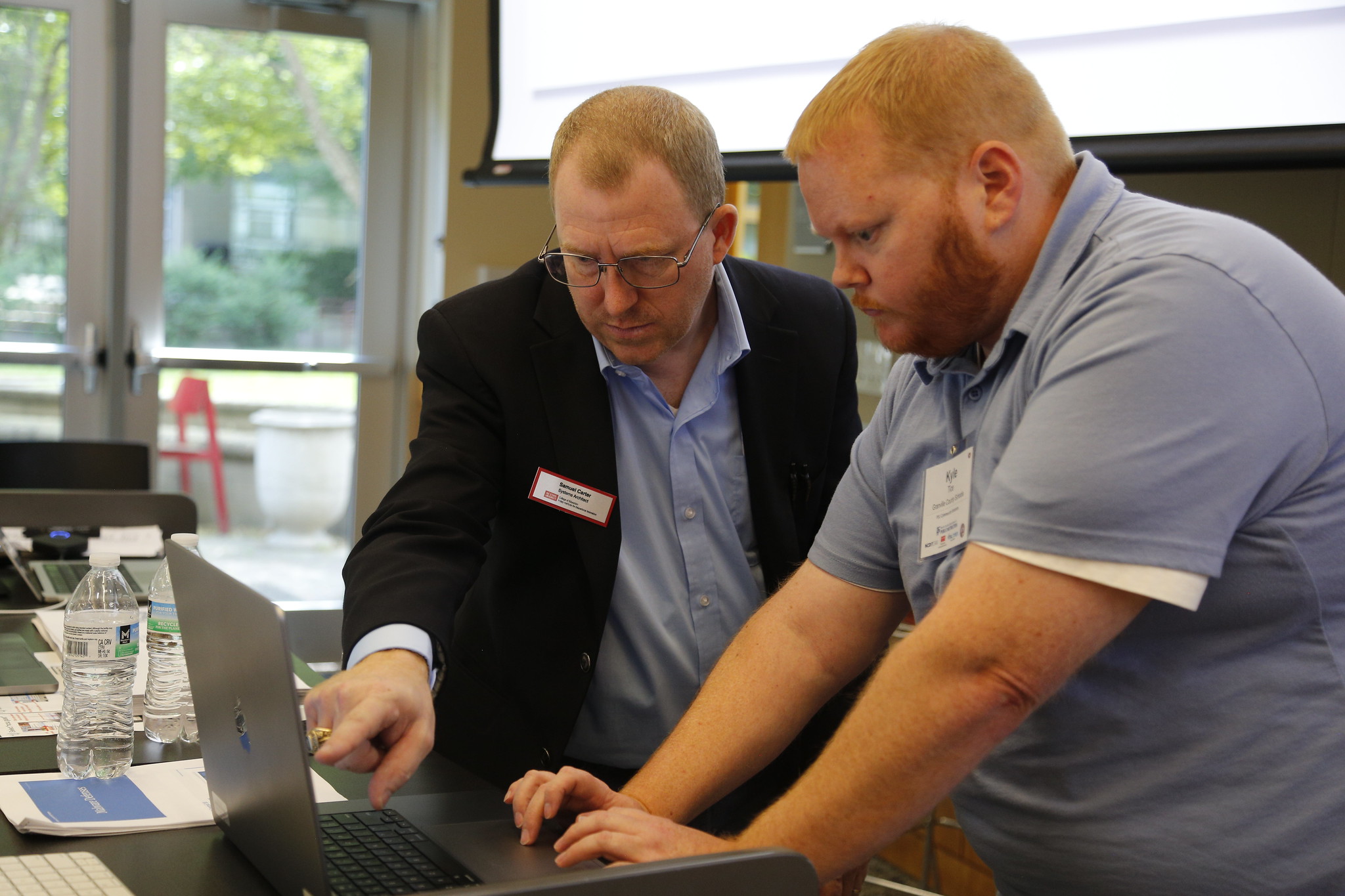GRIDC Project Expands into Wind and Sustainable Transportation Technologies
October 5, 2009 – Green Research for Incorporating Data in the Classroom (GRIDC) is a National Science Foundation (NSF)-funded project aimed at developing students’ higher order thinking skills in a data-rich learning environment. The research team has created an extensive data collection system that utilizes renewable energy sources at the North Carolina Solar Center and throughout the state of North Carolina.
In the initial phase of the project, data collection devices were created for the NC Solar House and its grounds. The devices provided real-time data for use in undergraduate classes in the Colleges of Engineering and Education at NC State University and courses at Pitt Community College. The data is made available online as it is gathered, which allows the data to be used in a variety of learning environments. One goal of the project is to present real data to students so they can make informed choices about their energy usage.
“Students have a general knowledge of concepts such as wind and solar power, but they generally do not understand the pros and cons of different types of renewable energy systems,” says Dr. William DeLuca, associate professor of Technology Education at NC State and principal investigator on the project. “Through this research, we are able to provide them with data so they can understand and decide for themselves how well these systems work – and in what sorts of applications.”
GRIDC data has been used to design instructional units for courses such as Construction Technology (TED 221), which provides an overview of residential and commercial structures and their construction; Instructional Science Materials (EMS 373), which teaches students to develop and select teaching materials that reflect concepts of content; and Design of Solar Heating Systems (MAE 421), which involves the analysis and design of active and passive solar thermal systems for residential and small commercial buildings. Using GRIDC data, students are able to graph, analyze, compare, and interpret the data using a variety of statistical methods.
The second phase of the project was recently funded by an additional NSF grant and will allow the researchers to expand their data collection devices to include electric vehicles and wind turbines located on the Outer Banks. Data will also be collected from a new electric car station to be housed on Centennial Campus. A partnership with Progress Energy and Advanced Energy will allow the research team to use data from both companies’ entire fleet of electric cars.
The GRIDC project was recently featured in the NSF’s Education Technology Showcase on Capitol Hill. One of only 17 NSF-funded projects invited to present, the GRIDC team demonstrated ways for students at all levels to gain firsthand experience about alternative transportation technologies. In this case, the students presented their experiences at workshops that allowed middle and high schools students to design and build miniature solar powered cars. Their presentations were very well received and Senator Harry Reid mentioned GRIDC in his remarks after touring the showcase.
Due to the overwhelming success of the workshops, a new program called STEP (Sustainable Transportation Electrification Program) has been developed and will include two pilot electric vehicle competitions. Ten North Carolina middle schools will hold contests to develop remote-controlled, battery-operated cars. Six NC high schools will also build the model cars, in addition to solar charging stations to operate the model vehicles. Progress Energy continues its support of the GRIDC project by contributing additional funds to help ensure the future success of the STEP program.
“With the announcement from President Obama in 2009 of $2.4 billion in funding to support the electrification of transportation for America, we need a prepared workforce and consumers informed about the infrastructure and vehicles,” say Dr. Pam Carpenter, Program Manager for Clean Energy Education and Workforce Development at the NC Solar Center and co-principal investigator on the project. “The STEP program provides an opportunity to engage middle and high school students to learn about Smartgrid, electric and plug in hybrid electric vehicles, battery technologies, charging vehicles, and careers in engineering, science, and technology.”
“Electric vehicles are clean vehicles with no tailpipe emissions and less expensive to drive than gasoline vehicles,” Dr. Carpenter adds. “We all win with this paradigm shift towards the electrification of transportation for our economy, environment, and preparing a trained workforce and fluent consumers in these areas.”
GRIDC is a partnership between the North Carolina Solar Center, the College of Education, and the Friday Institute for Educational Innovation. The project team will continue its collaborations with Progress Energy, Advanced Energy, and Pitt Community College, while further engaging the community and involving other institutions such as Caldwell Community College. Drs. DeLuca and Carpenter will carry the success of the project’s first phase to the second phase with the support of Drs. Len Annetta and Aaron Clark serving as co-principal investigators from the College of Education, Dr. Joe DeCarolis as co-principal investigator from the College of Engineering, Dr. Nasim Lari as research consultant, and Mr. G.W. Barrett and Mr. Erik Schettig as researchers.
To learn more about the GRIDC project or to view the real-time data that is being collected, visit their website. You may also visit the website of NC Solar Center for other programs and resources relating to renewable energy.
- Categories:



